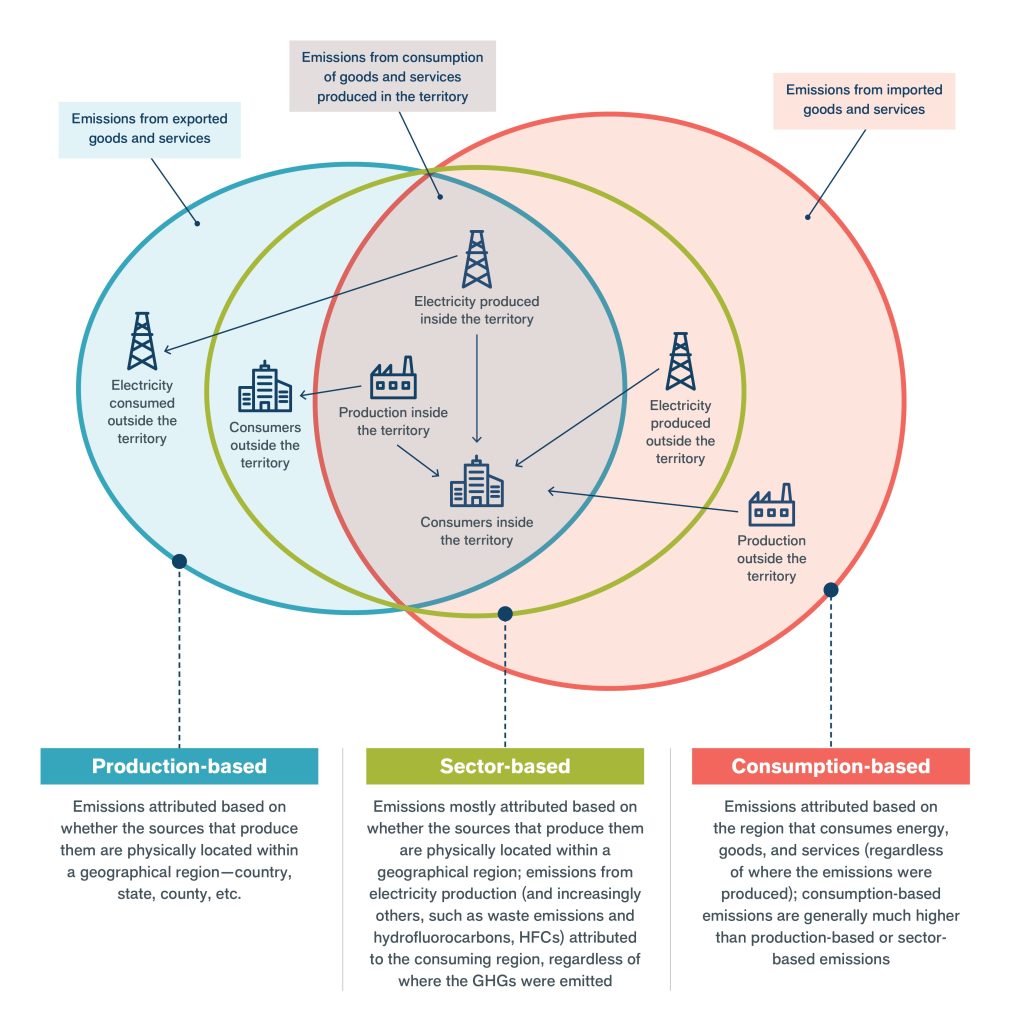Demystifying Emissions Accounting with the Clean Energy Transition Institute: a Capstone Project
Jade Sauvé, UW Oceanography
As the world strives to meet ambitious climate goals, one critical yet often overlooked challenge is tracking and accounting for greenhouse gas (GHG) emissions. Emissions accounting plays a pivotal role in helping policymakers, businesses, and communities measure progress toward decarbonization. However, for many in the Northwest U.S., understanding how emissions are quantified and reported can seem like a daunting task.
Jade Sauvé, a graduate student in Oceanography at the University of Washington, took on this challenge for her capstone project, collaborating with the Clean Energy Transition Institute (CETI), a nonprofit dedicated to accelerating an equitable clean energy transition in the Northwest, to create an Emissions Accounting 101 document and presentation. Through her project, she aimed to “demystify” emissions accounting, creating resources that would help a range of stakeholders—from policymakers to business leaders—better understand the different methods used to track emissions in the region.
Jade’s collaboration with CETI first started in 2022 with an ACORN project. The Actionable Community-Oriented Research eNgagement (ACORN) Program, a PCC entity, provides opportunities for collaboration between community leaders and graduate students. For about one year, Jade worked with CETI on their Northwest Clean Energy Atlas, an open-access resource that aims to aggregate energy data across the four Northwest states and to share it using Tableau interactive data visualizations. Following a very successful partnership, Jade worked with CETI to develop a science communication project that would fill a need for the CETI audience while also meeting PCC capstone requirements.
CETI has long been involved in developing pathways for deep decarbonization in the Northwest, and their recent Net-Zero Northwest (NZNW) project sparked a need for clearer guidance on emissions tracking. There are numerous methods for emissions accounting, from national inventories to corporate emissions reports, and the complexity of these systems can make it difficult to measure progress toward goals. CETI wanted to create a resource that would help stakeholders in Idaho, Montana, Oregon and Washington, and better understand these methods and improve their ability to understand emissions inventories.

The project began with background research by Jade into emissions accounting methods, including national frameworks (like the Paris Agreement), subnational inventories used by states like Washington and Oregon, and corporate emissions tracking practices (such as those used by Microsoft). Through several rounds of review, Jade and the team at CETI then distilled this complex information into digestible content, emphasizing clarity and visual aids to facilitate understanding.
Jade worked closely with her CETI advisor, Ruby Moore-Bloom, and a team of collaborators to iterate on both the content and design of the final deliverables. Carol, a graphic designer on the team, played a key role in translating Jade’s concepts into visually compelling and polished graphics. After several rounds of feedback, the team produced a comprehensive 11-page document and slide deck to accompany a live webinar. The webinar, which took place in December 2024, was designed to guide the CETI audience through the different emissions accounting methods and offer practical examples from the Northwest. A follow-up Q&A document was created to answer remaining questions from the audience.
Through this project, Jade expanded her expertise beyond climate science and into the applied world of emissions accounting. While her background is in oceanography, this capstone allowed her to deepen her understanding of how emissions are tracked in the context of regional and corporate efforts. She found that emissions accounting is an essential but often underappreciated component of climate action, and gaining proficiency in this area will be useful for her future career.
The project also provided valuable experience in science communication. Jade learned how to distill complex scientific topics into clear, accessible content for non-experts—an essential skill for anyone looking to engage with diverse stakeholders. Working with a broad team, she navigated feedback loops, developed visual aids, and ensured the content was both accurate and engaging.
For Jade, the capstone project was more than just an academic exercise; it was an opportunity to engage with real-world issues and collaborate with professionals in the clean energy space. She noted the importance of working with a team of experts and how that collaboration enhanced the final product. The iterative process of feedback, review, and revision was a valuable experience that mirrors the dynamic and fast-paced nature of non-academic workplaces. Overall, the capstone experience was incredibly valuable to Jade, both professionally and personally, and she hopes to continue making a positive impact in the fight against climate change.
Jade is a graduate student in the School of Oceanography at the University of Washington. Her research investigates the fluxes of carbon between the atmosphere and the ocean, and between the surface and deep oceans. More specifically, she studies the mechanisms driving carbon flux seasonal variability in the Southern Ocean using a range of data from direct observations to complex models. She completed the capstone project described above for the Graduate Certificate in Climate Science.